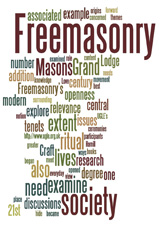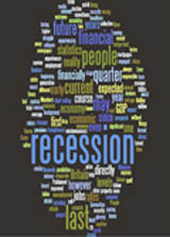The Future of Freemasonry
The Social Issues Research Centre (SIRC) was pleased to receive an approach from the Grand Secretary of the United Grand Lodge of England (UGLE) to explore the role and relevance of Freemasonry in society today and in the future.
In our preliminary research we consulted some modern texts on Freemasonry as well as online resources to help us identify the central themes of the research. One thing that immediately became apparent was that the notion of Freemasonry as a 'secret society' was clearly inappropriate. In Tobias Churton's Freemasonry: The Reality, for example, we found more or less all one needed to know about the central tenets of the movement and the rituals associated with it. We were also struck by his conclusion that:
"Freemasonry cannot forever be associated with the secret society syndrome. It is not a secret society, though when persecuted it has been sensible to be discreet. But a healthy society will promote greater openness and understanding for all. It is not good for Freemasonry to hide itself; it has no more trade secrets to defend."
A number of other books opened up the world of Freemasonry to inspection, including the details of initiation ceremonies. John Hamill's The Craft provided a very useful account of the origins and history of English Freemasonry, dispelling a number of myths in the process, while Freemasonry: A Celebration of the Craft, edited by Hamill and Robert Gilbert, illustrated the 'ideals' and 'virtues' of Freemasonry. In addition to this background reading we also examined the content of UGLE's own website (http://www.ugle.org.uk) that hosts a range of information and opinion pieces penned by senior Masons.
A response to the Grand Secretary's enquiry began to form. We proposed to examine the relevance of two of Freemasonry's main tenets in 21st century Britain - those of 'Brotherly Love' and 'Relief' - translated into the more familiar social science terms of 'affiliation' and 'altruism' - and the surrounding issues of male bonding and charity. We would also explore whether there is a desire for a degree of ritual in our modern lives. We would speak with Lodge members across the country and the discussions would be forward looking - to what extent, in their view, can/should Freemasonry evolve in the 21st century? For these discussions to take place we would need to test Freemasonry's claims for openness and transparency.
In addition, we would examine the connection between Freemasonry and the wider community in focus groups with participants who, to the best of our knowledge, were not Masons. In these we would be concerned with the same issues as in the interviews with Freemasons. We would, for example, examine the presence of, or the need for, an element of ritual in our lives, our need to belong, the ways we express our generosity towards others and the extent to which our everyday lives involve ritual behaviours. How different are Masons from other people in these contexts? To what extent does Freemasonry meet timeless needs and wants that we all, to one degree or another, share?
This report is, as far as we know, an account of the first ever study that has been commissioned by Freemasons from a non-Masonic body. None of the SIRC members involved in the project are Freemasons, a fact that evoked surprise and welcome in equal measure from the Lodge members we met. Many saw it as an opportunity to communicate 'what the craft is really all about' to a wider audience and provided proof, if it were needed, of the prevailing openness among the Freemasonry fraternity. As outsiders, of course, we have not experienced at first-hand what it is really like to be a Mason in today's pluralistic society that is, in fundamental ways, very different from that which prevailed in the late 18th century when Freemasonry was first formed. We have faced the dilemma of the social anthropologist who, as one Mason put it, can only 'scratch the surface' of the tribal mores (norms and values) that are the focus of his or her study.
Click here to read or download the report on issuu.com.






